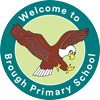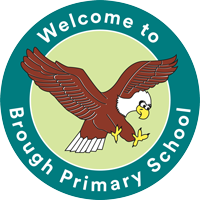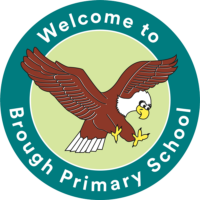Intent
Our history curriculum inspires in our children a curiosity to find out more about Britain’s past and that of the wider world. We will attain the requirements of the National Curriculum for history whilst providing a broad and balanced curriculum which ensures the progressive development of historical skills.
Our aim is that all children have a fundamental understanding of key periods in history and to learn to ask questions about why things happened in the past, the impact of those events and how the past has influenced the present.
By linking learning to a range of topics, children have opportunities to investigate and interpret the past, understand chronology, build an overview of Britain’s past as well as that of the wider world, and to be able to communicate historically.
At Brough Primary School we want all children to develop a love for history. Children are encouraged to explore new topics in different ways and within an inclusive environment. Children will gain knowledge and skills through handling objects and artefacts. ‘Hands on’ history experiences are an important part of how children find out more through deepening their understanding of who and what has shaped our world today.
Aims
The national curriculum for history aims to ensure that all pupils:
- know and understand the history of these islands as a coherent, chronological narrative, from the earliest times to the present day: how people’s lives have shaped this nation and how Britain has influenced and been influenced by the wider world
- know and understand significant aspects of the history of the wider world: the nature of ancient civilisations; the expansion and dissolution of empires; characteristic features of past non-European societies; achievements and follies of mankind
- gain and deploy a historically grounded understanding of abstract terms such as ‘empire’, ‘civilisation’, ‘parliament’ and ‘peasantry’
- understand historical concepts such as continuity and change, cause and consequence, similarity, difference and significance, and use them to make connections, draw contrasts, analyse trends, frame historically-valid questions and create their own structured accounts, including written narratives and analyses
- understand the methods of historical enquiry, including how evidence is used rigorously to make historical claims, and discern how and why contrasting arguments and interpretations of the past have been constructed
- gain historical perspective by placing their growing knowledge into different contexts, understanding the connections between local, regional, national and international history; between cultural, economic, military, political, religious and social history; and between short- and long-term timescales.
Implementation
In order to ensure high standards of teaching and learning in history, we implement a curriculum that is progressive throughout the whole school from EYFS to Year 6. Our youngest children in EYFS will begin to understand chronology on a timeline of their life from birth to school age. This chronological knowledge will continue to build throughout different topics so our children leave Year 6 with a strong chronological understanding of British history.
British history units in Key Stage 2 are sequenced chronologically with world history units best placed for pupils to deepen their understanding of British history.
The long-term plan maps out the experiences the children will receive in each key stage. It is written by the subject leader in consultation with phase leaders and teaching staff. The subject leader provides medium-term plans for each unit of work ensuring that key skills, required knowledge and objectives are covered. This supports teachers with the development of lesson planning.
Bringing history to life and making it memorable for our children is important to us. We provide a variety of in-school experiences and educational visits so that children can fully immerse themselves in the history of a topic.
We are proud of our local history and this includes the achievements of Hull-born pilot Amy Johnson and the opening of the Humber Bridge by Queen Elizabeth II. Links are made within our community and children understand how people from the past are significant to our local area.
Impact
At Brough Primary School we want every child to leave us in Year 6 having had a ‘hands on’ approach to their learning across periods of time from the age of the Dinosaurs up to events within living memory. Children should be able to ask perceptive questions, think critically, weigh evidence, sift arguments, and develop perspective and judgement.
We want our children to be passionate for history, preparing them as well-informed lifelong learners in the wider world.
Children will meet or exceed the progression of skills requirements in chronological understanding, analysing historical sources, using subject specific vocabulary and asking questions to analyse and evaluate the past. Children will become not just passive recipients of factual information, but enquiring and challenging thinkers who appreciate that there is much we can learn from the past in order to improve the future, and have the skills and the passion required to continue to do so.
We measure the impact of our curriculum by: –
- Monitoring of taught history skills across the school to evidence progress.
- Discussing history topics and taking feedback from the children (pupil voice) by checking against age appropriate historical vocabulary used.
- Assessing childrens’ knowledge to make links between different periods of time and key events / people studied.
- Moderation of books to share examples of work within a particular area, for example chronology skills (opportunity for dialogue between teachers and the subject leader).
- Monitoring of classroom environments (learning walks) to check coverage of history topics through displays, resources and vocabulary used (including the display of an age-appropriate timeline in every classroom).
- Images and video of children’s practical learning during visitor experiences (in school) and educational visits.


